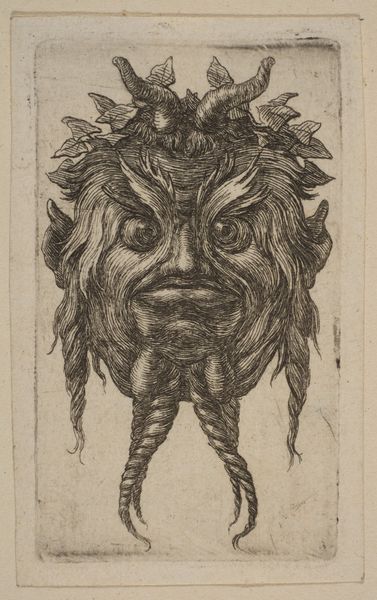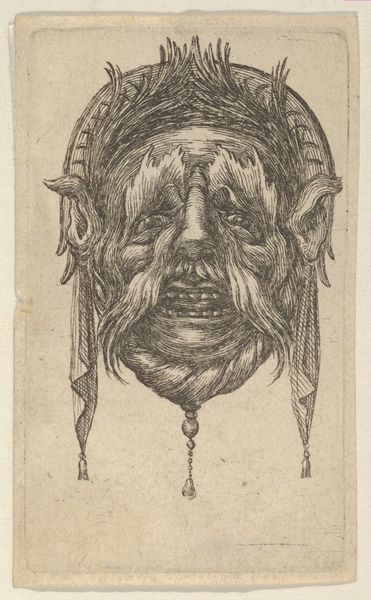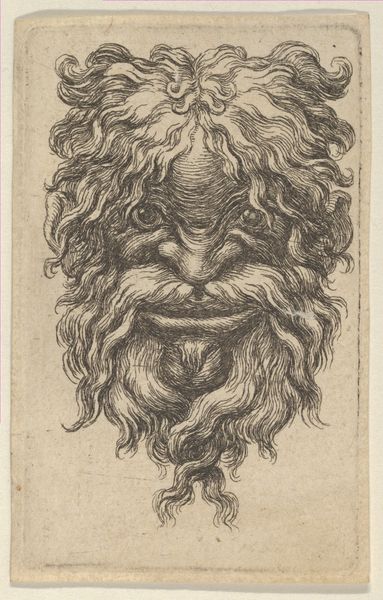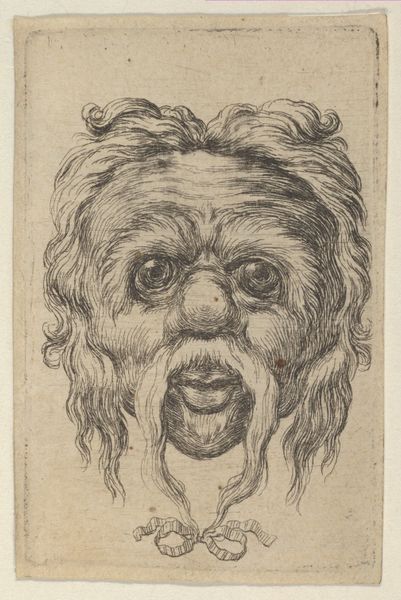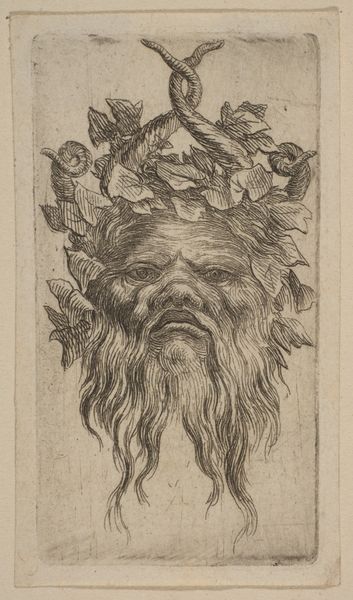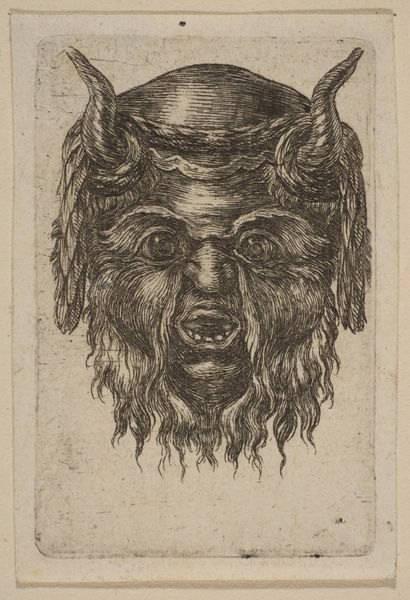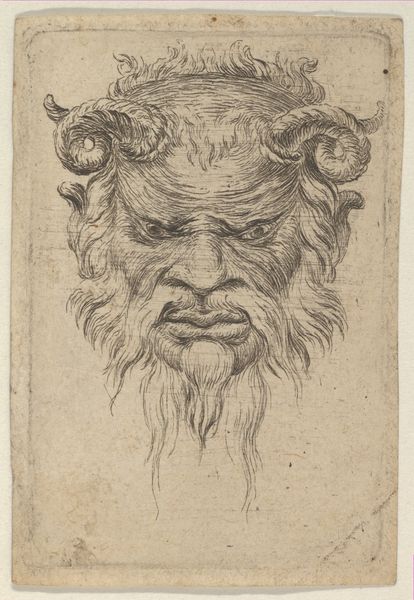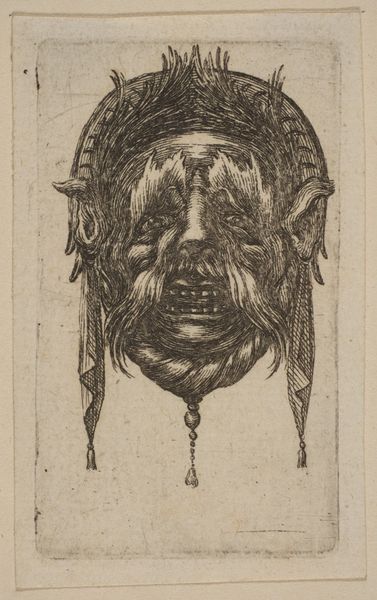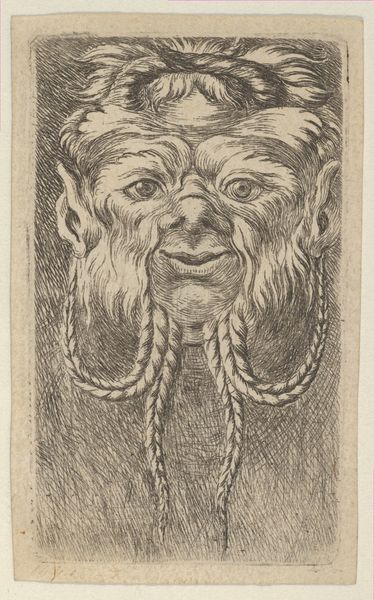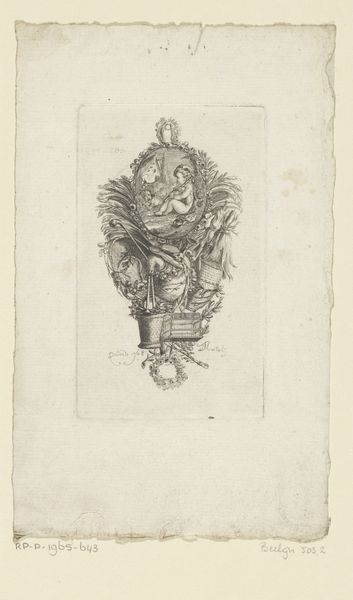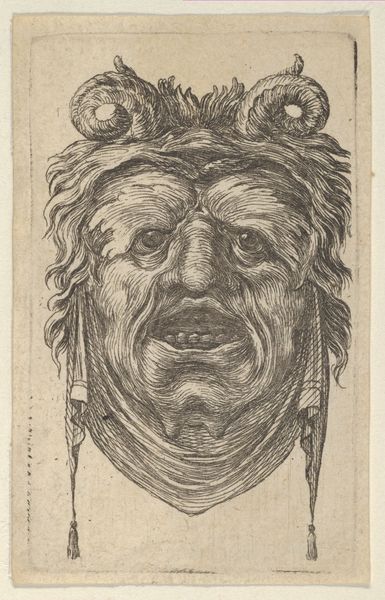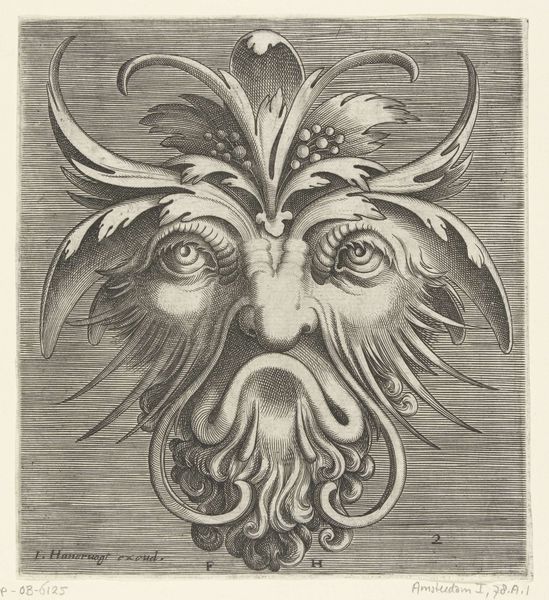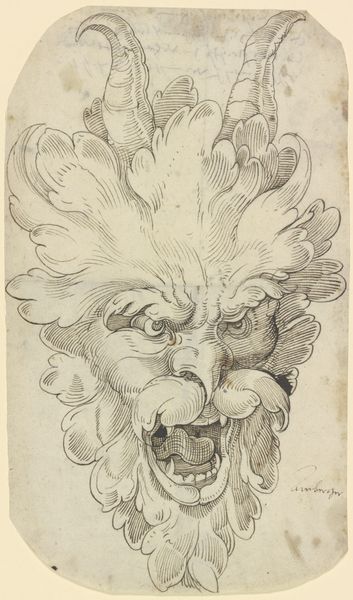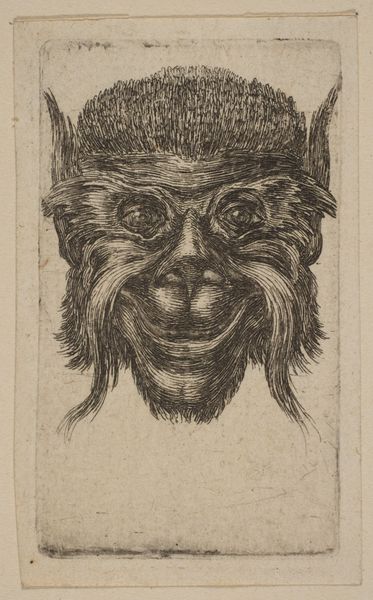
Satyr Mask with a Spiral-Shaped Beard and Ivy Grouped Around Each Horn, from Divers Masques 1630 - 1650
0:00
0:00
drawing, print, engraving
#
drawing
#
baroque
# print
#
figuration
#
engraving
Dimensions: Sheet: 2 1/2 × 1 5/8 in. (6.3 × 4.2 cm)
Copyright: Public Domain
This etching of a satyr mask with a spiral beard and ivy crown was made by François Chauveau in France, during the 17th century. The image comes from a series titled “Divers Masques”. During this period, France was under the reign of Louis XIV, and art became a tool to project power and grandeur. Chauveau, as an engraver to the king, was part of this system. But what does this image of a Satyr mean in that context? Satyrs are figures from classical mythology, associated with wildness, revelry, and the natural world. Think about the formal gardens and rigid social structure of Louis XIV's court. This mask could represent a kind of freedom or escape, a sanctioned release from social norms through masquerade. To understand this image fully, we might look at records of court entertainments and consider the role of classical imagery in shaping cultural identity. We can start to see how art, even in its smallest forms, can reflect complex negotiations between power, social control, and individual expression.
Comments
No comments
Be the first to comment and join the conversation on the ultimate creative platform.
